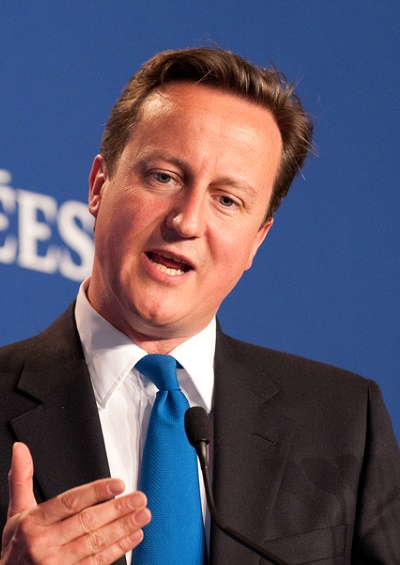Preventing Juncker: Cameron’s Self-Defeatist Move
Why is Britain’s prime minister opposing the European Commission head who is most favorable to the UK’s positions and interests?
June 20, 2014

Just as England’s soccer team was eliminated from the World Cup, it now seems clear that Prime Minister David Cameron has lost the Battle of Brussels. That would make it two embarrassing losses in a row.
As soon as the European Parliament election result was announced, Mr. Cameron launched a blitzkrieg to stop Jean-Claude Juncker, a veteran and wily European prime minister from Luxembourg, from becoming the next president of the European Commission.
Like Don Quixote, David Cameron has been tilting his lance at the choice of most of Europe’s center-right governments — including by Germany’s Angela Merkel — for the next Commission president.
Creating a monster
It is bewildering to see that Mr. Juncker has met a level of hostility from London without parallel as if he were the EU’s own Robert Mugabe or Kim Jong-un. This sentiment spans the political spectrum of the UK, from the Conservatives via the Liberal Democrats to Labour, all the way to the commentators of the Financial Times and the more predictable writers of the Murdoch-owned press.
There is rare unanimity that Juncker is a dreadful man who should not even be allowed to run a moules-frites stall in Brussels, let alone the European Commission.
Juncker is accused of being a “federalist” without any definition of what this dreaded word actually means. It is hard to see why that would be a bad thing, especially from a UK perspective.
In fact, if there is one point on which much of London agrees, it is that the EU needs loads more single market — especially in the service industry and in terms of a common energy policy.
Acting in Britain’s interests
That, in a nutshell, requires — you guessed it — a determined pursuit of European federalism. And that won’t happen without a Brussels that acts in a much more bossy manner and that is determined to force recalcitrant states to share sovereign powers.
If smashing down protectionist barriers to create a single market is federalism, then Margaret Thatcher, the driving force behind the Single European Act, is the biggest federalist of them all.
In fact, the three most recent European Commission presidents favored by London — Jacques Santer, Romano Prodi and José Manuel Barroso — all weren’t that impressive. That does not speak for the UK’s talents in picking “winners.”
As part of the big movement of musical chairs that is currently underway in Brussels, the EU is offering London the key post of the Secretary Generalship of the European Commission to a Brit, Jonathan Faul. That is a key post, sort of the technocrat-in-chief in Brussels who can steer many things one way or another.
David Cameron should pocket that and pick up the phone to talk to Juncker about what really matters in the next three years — how to avoid Brexit, a Britain exit from the European Union.
Self-defeatism in action
The oddest aspect of Mr. Cameron’s campaign is that Mr. Juncker is closer to the Tory ideology than any other possible candidate for Commission president. Juncker is in favor of low taxes and a champion of lightly regulated financial services. After all, his native Luxembourg is the closest the EU has to an on-shore tax haven.
Luxembourg’s royal family has good links to British royals, and the small nation’s survival owes much to a pragmatic problem-solving capacity that is closer to English traditions than French Jacobinism or German legal logic.
If anything, Juncker’s economic policies should be welcomed by Mr. Cameron’s government. During the recent European Parliament election campaign, Juncker was bitterly attacked by the European left. His main opponent, German social democrat MEP Martin Schulz, charged Juncker with imposing Conservative-style austerity and spending cuts across the eurozone.
Perhaps most significantly for London, Juncker was the only candidate during the European Parliament election to have warm words for Britain. In a news conference, Juncker stressed that “as commission president, I will work for a fair deal for Britain.”
And he added: “No reasonable politician could neglect we have to find solutions for the political concerns in the UK. We have to do this to keep UK in.”
Takeaways
Why did the UK launch a blitzkrieg to prevent Jean-Claude Juncker as the next president of the European Commission?
Mr. Juncker has met a level of hostility from London as if he was the EU's Robert Mugabe or North Korea's Kim Jong-un.
Mr. Juncker is closer to the Tory ideology than any other possible candidate for Commission president.
Juncker is in favor of low taxes. And his native Luxembourg is the closest thing the EU has to an on-shore tax haven.
Juncker was the only candidate during the European Parliament election to have warm words for Britain.

